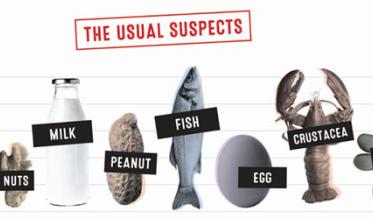Highlights
-
Food service, caterer and related retail businesses in NSW need to meet new food safety requirements in the Australia New Zealand Food Standards Code.
-
Food Standards Australia New Zealand (FSANZ) sets standards for labelling of products containing food allergens, gluten and sulphite preservatives.
-
Food businesses in NSW must either hold a licence from the NSW Food Authority or notify their business details to the relevant body.
-
 Food Standards Australia New Zealand (FSANZ) sets standards for labelling of products containing food allergens, gluten and sulphite preservatives.
Food Standards Australia New Zealand (FSANZ) sets standards for labelling of products containing food allergens, gluten and sulphite preservatives. -

The NSW Food Authority and local councils work together at the retail business level to regularly inspect cafés, restaurants and ret
-

Caterers selling food direct to consumers
Caterers who prepare food that will be served direct to the end user need to meet the same food safety requ
-

The NSW Food Authority and NSW Government recognise the valuable work charities, organisations and volunteers do in providing or selling food for charitable
-

Children's services that provide food as part of their service need to meet requirements in the Food Standards Code and Food Act 2003 (NSW).
-

The NSW Food Authority and local councils work together to make sure food sold to the public is safe and properly labelled.
-
 To qualify as a Food Safety Supervisor (FSS) you must achieve the required units of competency from an approved Registered Training Organisation.
To qualify as a Food Safety Supervisor (FSS) you must achieve the required units of competency from an approved Registered Training Organisation. -

Home-based food businesses can be a hobby for extra income or the start of something much larger.
-

Businesses that import food or food ingredients for retail sale in Australia are considered a food business.
-

The NSW Food Authority has a partnership with the 128 local councils across NSW, who conduct regular inspections of retail food businesses in their loca
-

Businesses that sell food at temporary events such as fairs, festival, markets and shows are considered retail food businesses as they sell food to the publi
-

Mobile food vendors are considered retail food businesses as they sell food to the public and need to comply with a range of requirements.
-

Food safety in school canteens is essential, particularly as children can be more vulnerable to foodborne illness.
-

Seafood retailers need to meet the same food safety requirements as cafes, restaurants and retail outlets.
-

Water carting is sometimes the only reliable source of potable (drinking quality, fit for human consumption) water.





